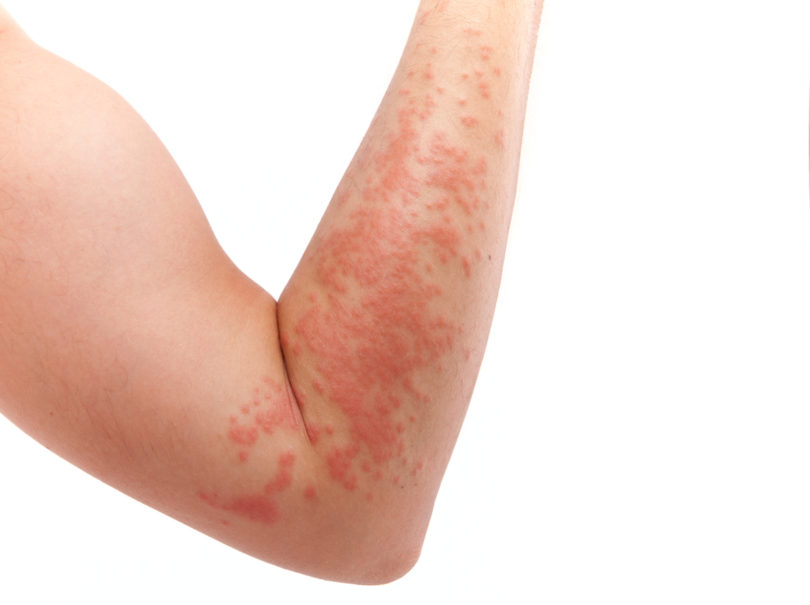Why am I getting hives?
Urticaria — also known as hives — is caused when mast cells release histamine (the same chemical released after a mosquito bite), which triggers redness, swelling and itching. They present as large welts or red, raised, itchy pin-point rashes anywhere on the body, often accompanied by angioedema (swelling). Each hive typically disappears within 24 hours and may re-appear in another location.
Acute hives resolve within six weeks and can be triggered by heat, cold, pressure, stress, sunlight exposure, infections, side effects of medications, allergic triggers such as foods, or pollen or animal dander/saliva. Chronic hives, which recur for longer than six weeks, are very difficult to control and can affect sleep quality, daily activities and can lead to depression. A causal factor is rarely identified in patients with chronic hives, causing frustration for both patients and primary care providers. Treatment includes identifying and avoidance of triggers, increasing doses of non-sedating antihistamines and oral steroids. Omalizumab (Xolair), a monthly biologic medication administered by injection in the allergy office, is approved for patients with difficult-to-control chronic hives and swelling.
If you are suffering from hives, Allergy Partners physicians would be happy to evaluate and create your personalized treatment plan.







